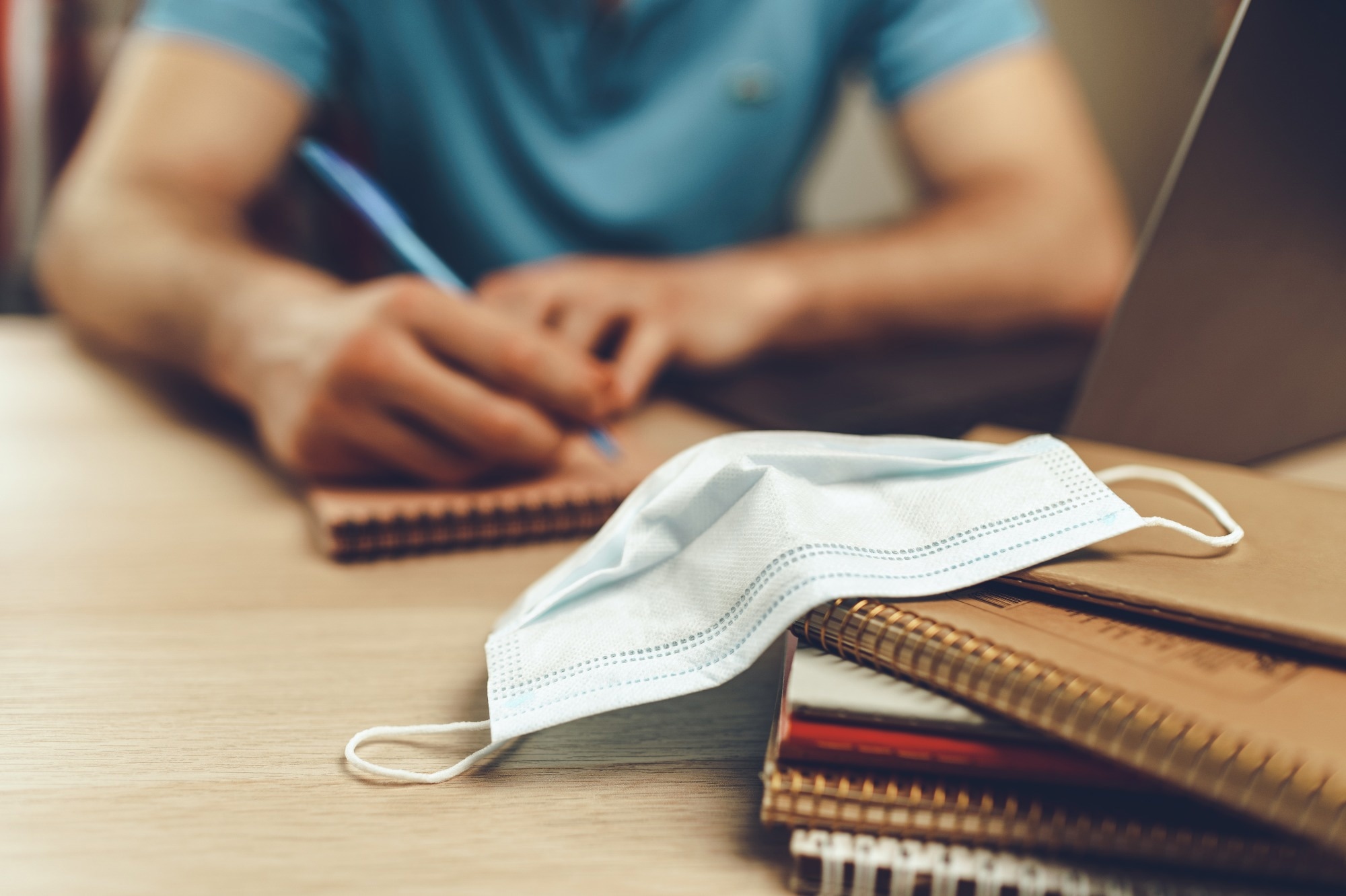In a recent study published in the journal PLoS ONE, researchers evaluated the effects of coronavirus disease 2019 (COVID-19) on the sleep quality and mental health (MH) of university-attending undergraduate students.
The severe acute respiratory syndrome coronavirus 2 (SARS-CoV-2) pandemic has posed unique social, academic, health-associated, and financial challenges for young adults. In addition, several studies have reported increased MH issues mid-pandemic in the general public; however, data on the magnitude of intra-individual sleep difficulties and MH issues are lacking.
The study's authors previously examined the impact of sleeping patterns on the MH of 78 young individuals enrolled in an elementary course in biology self-at New York's Colgate University between October and November 2020. The study findings showed that the self-documented scores for anxiety, sleep perturbations, and depression did not show significant differences among the participants.
 Study: Intra-individual impact of the COVID-19 pandemic on mental health and sleep in young adults. Image Credit: FabrikaSimf / Shutterstock
Study: Intra-individual impact of the COVID-19 pandemic on mental health and sleep in young adults. Image Credit: FabrikaSimf / Shutterstock
About the study
In the present study, the researchers reported only intra-individual effects among previous study cohort participants with complete pre-COVID-19 and mid-COVID-19 pandemic data, using the SARS-CoV-2 pandemic as an intervention for the study.
The study comprised 23 European-descent Caucasian students (four and 19 males and females, respectively, with an average age of 19 years) who were sent invitations via email to participate in the study. Of all participants, fourteen reported their socioeconomic status as middle-class upper category, one as middle-class lower category, and eight as in the rich category.
On reaching the university campus, the students underwent a mandatory 14-day quarantine in the university dorms with only online classes, food delivered to their dorms, and time for outdoor activities limited to an hour. In addition, SARS-CoV-2 testing was performed for all students biweekly after the completion of the quarantine period, and mask-wearing and social distancing were implemented, with no social visits permitted between the dormitory floors.
Nearly 50% of the study courses were provided offline, and social gatherings and sporting activities were restricted before the study samples were obtained. The students completed self-reported behavioral surveys, including BDI-II (beck depression inventory II), STAI (state-trait anxiety inventory) PROMIS (patient-reported outcomes measurement information system) for sleep perturbations, reduced MEQ (morningness-eveningness questionnaire), and MSF (mid-sleep point on a free day), calculated using MCTQ (Munich chronotype questionnaires).
For obtaining sleep data, the study participants wore smartwatches for eight consecutive days during the Fall semesters of 2019 and the following year. The smartwatches measured sleep parameters such as sleep duration, deep sleep percentage for every night, light sleep percentage for every night, REM sleep percentage for every night, sleep offset and onset, the time duration in bed, and the count of night awakenings. In addition, multiple linear regression modeling was performed to analyze the pre-pandemic and mid-pandemic differences, and the odds ratios (OR) were calculated.
Results and discussion
The self-documented survey data showed that 78% of the study participants experienced increased anxiety and stress mid-pandemic. Additionally, within individuals, anxiety and depression symptoms elevated to a clinically significant magnitude from the pre-pandemic to the mid-pandemic period.
Among the participants, 68%, 45%, and 59% of the students reported lesser sleep, sleeping at a later time, and worsened sleep health during COVID-19, respectively. Mid-pandemic sleep perturbations were three-fold greater than pre-pandemic (OR 3.0). Sleep perturbations were associated with increases in depression and anxiety, underscoring the robust and inverse association between quality of sleep and MH.
Further, students reporting more significant sleep perturbations during COVID-19 experienced reduced deep and REM sleep. The students showed a four-fold greater likelihood of reporting moderate or high anxiety levels (STAI scores ≥38) and mild depression and above (BDI ≥14) in the mid-pandemic than in the pre-pandemic period with OR values of 4.1 and 3.7, respectively.
The mid-pandemic increase in anxiety levels among university students could be due to economic burdens, health-associated stressors, fear of disease acquisition and its impact on self and close relatives, routine life disruptions, lack of social interactions, loss of employment, and altered patterns of sleep. Deteriorated quality of sleep could adversely affect neurological and psychological states, emotion processing, and emotional sympathy.
Overall, the study findings showed a multi-faceted impact of COVID-19 on young adult students with the negatively affected quality of sleep, MH, and restorative sleep duration. Deep sleep and REM sleep reductions with increased sleep perturbations could lower the ability to mount robust immune responses and, therefore, have critical immunological implications among young adults. The findings underpin the need for increased efforts toward preventing and managing MH issues and sleep disorders, especially among undergraduate students.
- Knickerbocker KJ, Cox EA, Dhawka L, Woods K, Ingram KK (2022) Intra-individual impact of the COVID-19 pandemic on mental health and sleep in young adults. PLoS ONE 17(10): e0276165. DOI: https://doi.org/10.1371/journal.pone.0276165, https://journals.plos.org/plosone/article?id=10.1371/journal.pone.0276165
Posted in: Men's Health News | Medical Research News | Women's Health News | Disease/Infection News
Tags: Anxiety, Coronavirus, Coronavirus Disease COVID-19, Depression, Food, Mental Health, Pandemic, Respiratory, SARS, SARS-CoV-2, Severe Acute Respiratory, Severe Acute Respiratory Syndrome, Sleep, Stress, students, Syndrome

Written by
Pooja Toshniwal Paharia
Dr. based clinical-radiological diagnosis and management of oral lesions and conditions and associated maxillofacial disorders.
Source: Read Full Article
